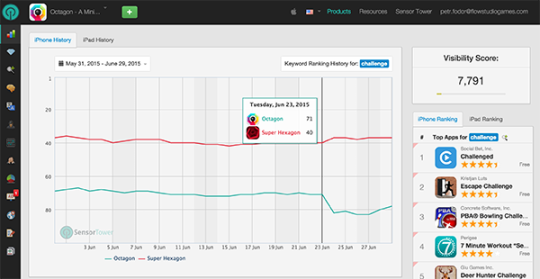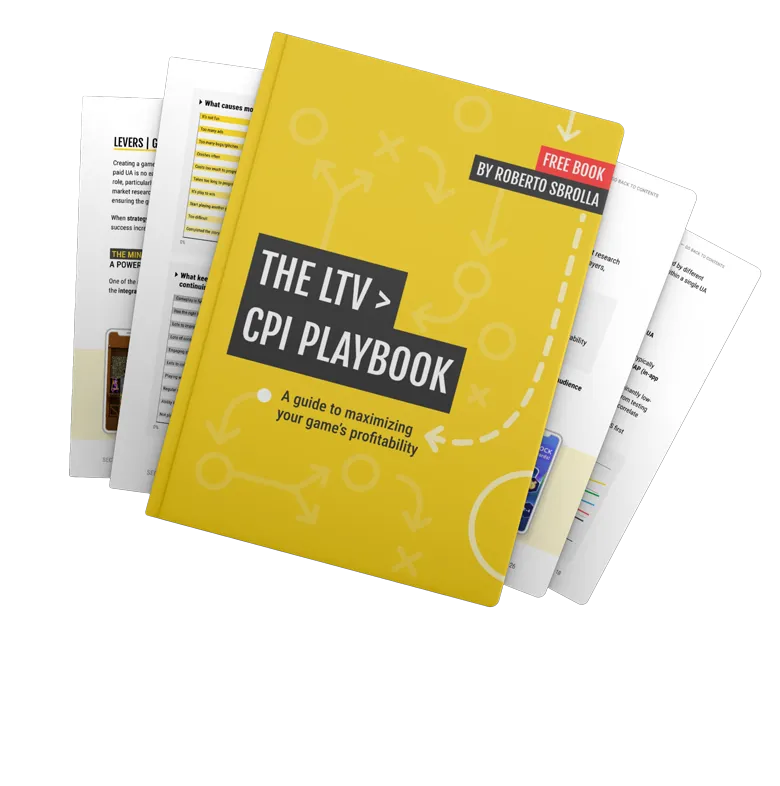Making apps is a hard job but selling them is way harder. Thousands of developers have experienced the empty feeling after they published an app or game but never got any traction and downloads. It’s probably one of the worst feelings to invest all your energy into building something which no one appreciates.
I try to constantly grow in my app marketing job and part of this involves searching and gathering many of the best tools available on the market. Today, I would like to share with you 6 services which aren’t widely known but very valuable.
1. Sensor Tower
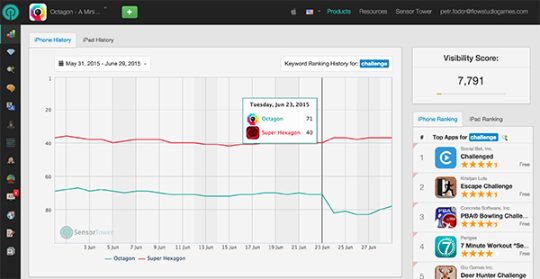
Sensor Tower is the “Swiss knife” for keywords. I’ve used several other tools but none is as complex and user friendly as Sensor Tower. My favorite section is Keyword Ranking where I can clearly see traffic for each keyword, difficulty and current ranking. You should always aim for words with high traffic but low competition until your app grows and also has a chance to rank for more difficult keywords.
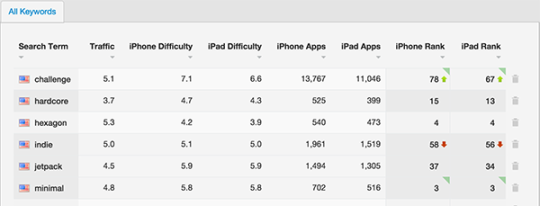
The next great tool is Keyword Spy. There you see the estimated keywords of your competitors and which of those you have in common. The problem is to find the best words and a module called “Keyword Suggestion” could help you with that.
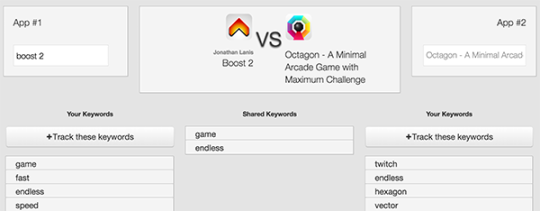
There’s much more in Sensor Tower such as a Keyword Optimization module, Category Rankings and Review Analysis to help you understand the sentiment. Sensor Tower has a limited free plan but it is worth it to purchase the Pro plan for $79.
2. Think Gaming
https://thinkgaming.com/app-sales-data/
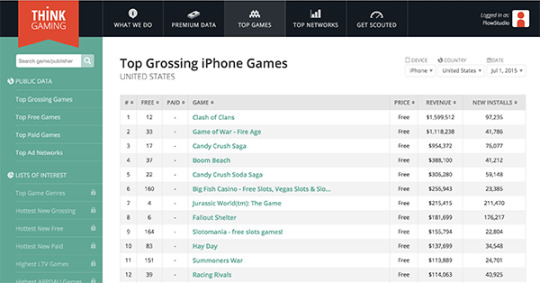
Imagine Think Gaming as an app revenue spy. It’s a great tool to understand how much the top grossing apps are earning, what are the estimated daily installs and top performing ad networks. These figures will amaze you, trust me!
The paid version, which is for $499 a month, reveals the user’s LTV value of your competitors together with ARPDAU. If you’re an indie dev looking for a comparison on how your app is doing, you can also install Think Gaming SDK or data from iTunes/Play Store. If you have a good stuff, there’s a chance the Think Gaming guys will connect you to the top game publishers and investors.
3. AppsFlyer
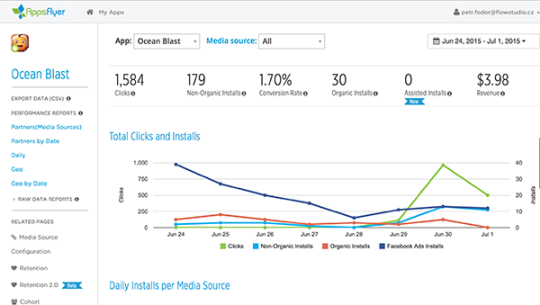
While I was running an App Marketing Workshop in the past, one of the most frequent questions was “can I track the sources of downloads?” Thanks to attribution tools such as AppsFlyer you can. You can see in a very simple dashboard not only the traffics sources but what is the retention and value of users coming from different sources. The system works with a majority of ad networks including Facebook and Twitter. You can also generate unique tracking links for banner campaigns, direct mailings or even an SMS campaign.
This tool helps you to optimize the best performing sources of traffic and save lots of money. The pricing is very competitive and starts at $0.05 for a non-organic install up to $0.01 for high volume campaigns.
4. BananaTag
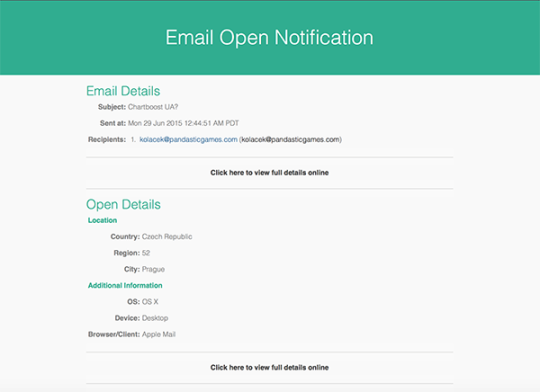
I’ve discovered BananaTag recently thanks to Steve P. Young from AppMasters.co. It’s an extremely valuable email tracking solution. Every time your email is opened you get an email notification informing you not only about the location of the user but also the clicked links. I missed this for years frustrated by a black box when I sent emails to people from Apple, Google or to the media. Now I see who and when the email was opened as well as if there was some interaction with the content.
Not only do I better understand what happens but I also can exclude journalists who have already viewed my email but haven’t responded. Why spam them? On the other hand, I can reach the rest with a reminder knowing they missed my initial communication.
5. Muck Rack
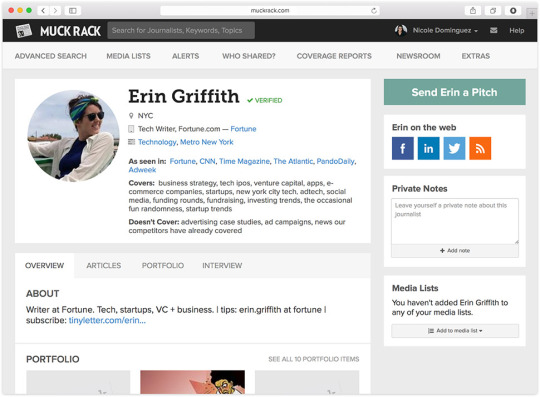
Muck Rack is like a huge database of journalists and their publishing activity across different outlets and Twitter. I used this tool when preparing a PR campaign for Arrive because the general tech-media space was new to me. Muck Rack helped me track different keywords allowing me to easily discover journalists covering Apple Watch apps. I made a database of their posts to make my pitch highly relevant. Muck Rack also has an email for most of the people in the database, some even agreed to be contacted through the service directly.
If you set up an alert, Muck Rack delivers a daily summary of selected topics so you don’t need to manually scan dozens of sites to track what’s going on in your space. The paid Muck Rack account goes for $199 and it can help you start a PR campaign fairly quickly.
6. RiteTag
https://ritetag.com/hashtag-search
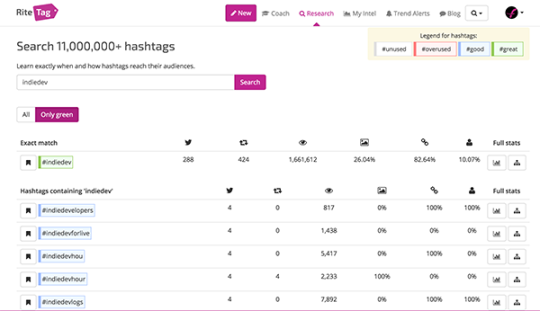
RiteTag identifies hashtags that got results and leads you to use them more, while continually refining your smart-tagging. Well-chosen hashtags greatly increase discovery rates by searchers, tag-trackers and hashtag clickers. You get a lots of information for each hashtag with a recommendation for similar but better performing words. What I like about RiteTag is that it taught me what works on Twitter. I got recommendations for the best length of a tweet, number of hashtags, usage of images etc. Pretty good “Twitter marketing course” for only $10 🙂
You can try RiteTag for free but the Lite plan starts at just $10, which is very affordable.
I believe that any of these 6 tools could improve your app marketing results. And because there are many other useful toll, please tell me which one do you use for app marketing and share with others your secret weapons!
